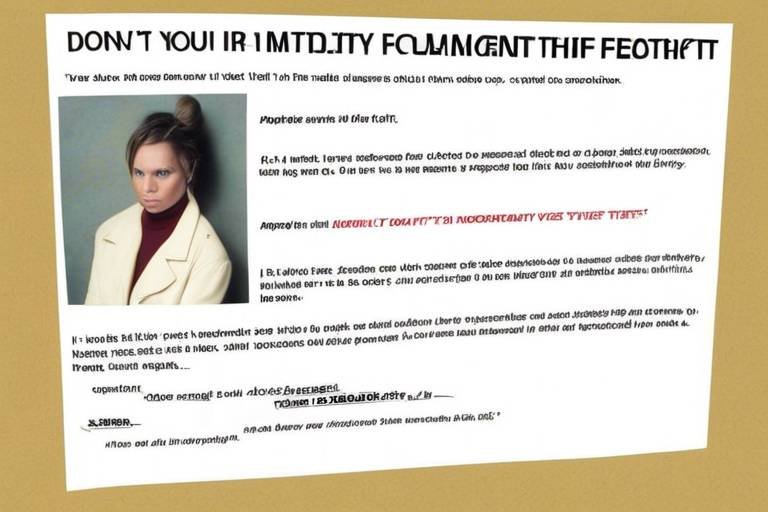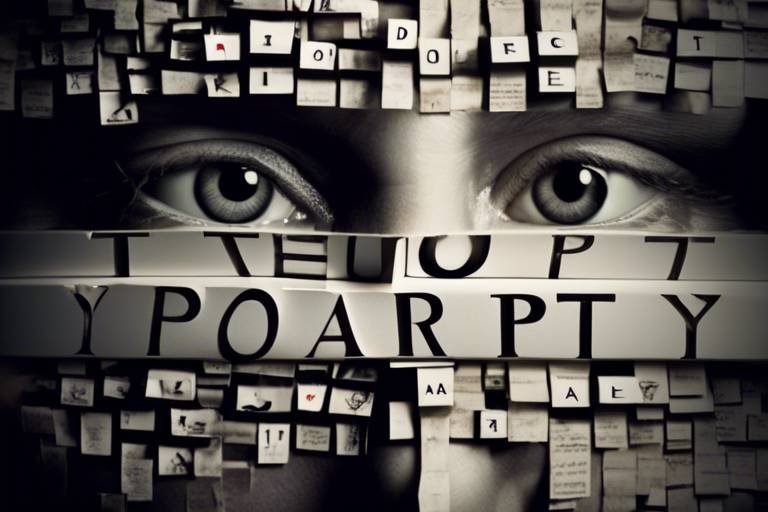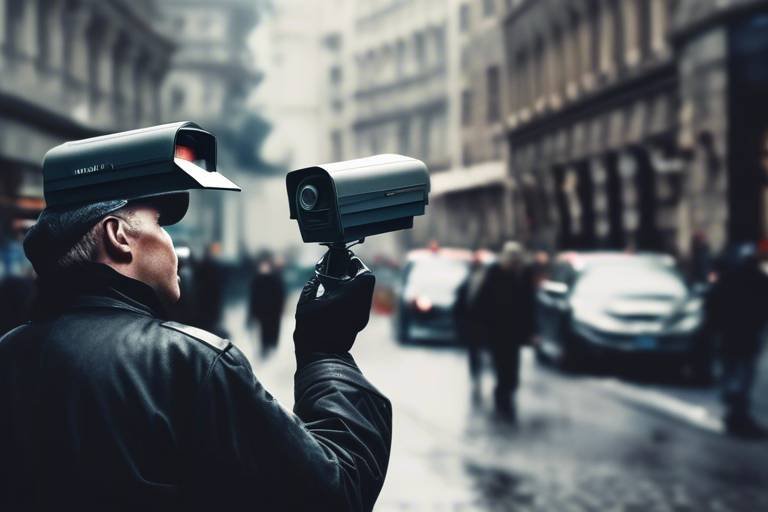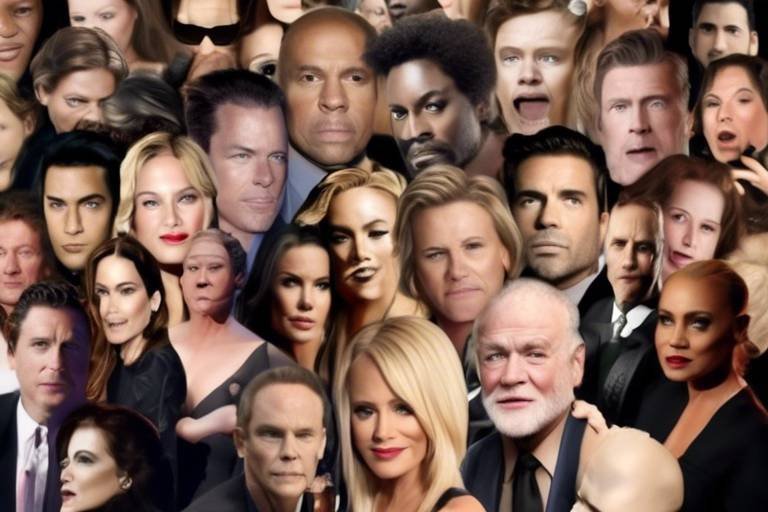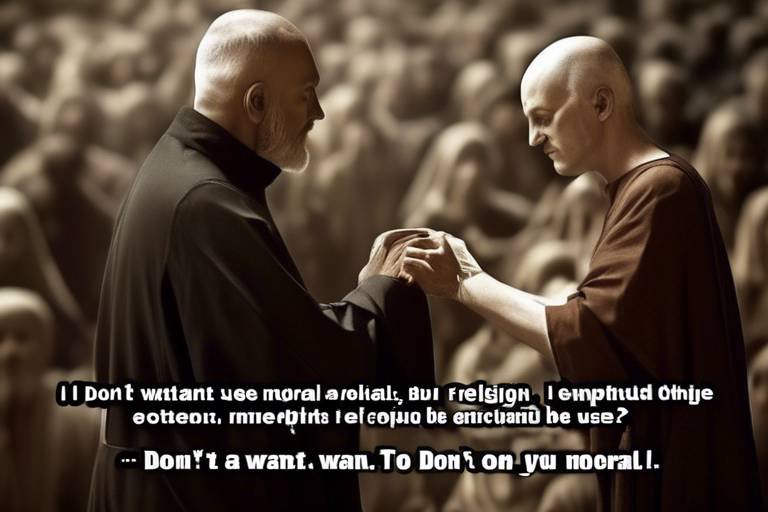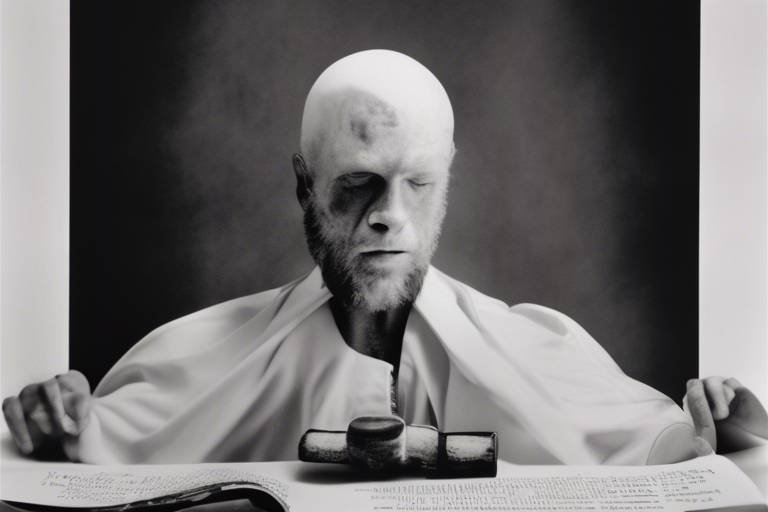Are all Heroes Virtuous? - A Moral Enquiry
This article explores the complex nature of heroism, questioning whether all heroes embody virtue. We delve into historical examples, philosophical perspectives, and the implications of heroism in contemporary society.
Understanding what constitutes a hero is essential for this discussion. A hero is often seen as someone who performs extraordinary deeds, displaying courage and selflessness. However, the definition can vary significantly across cultures and historical contexts. For instance, in some societies, a hero might be a warrior who defends their people, while in others, it could be a peaceful activist advocating for social change. The characteristics that define heroism can include:
- Courage: The ability to confront fear, pain, or adversity.
- Selflessness: Putting the needs of others before oneself.
- Integrity: Adhering to moral and ethical principles.
- Inspiration: The ability to motivate others through one’s actions.
However, these traits can sometimes be overshadowed by the actions and decisions heroes make, leading us to question whether all heroes are indeed virtuous. Are there instances where a hero’s actions, while seemingly noble, could be viewed as morally ambiguous?
Throughout history, heroes have been celebrated for their deeds, yet some of these figures have complex legacies. Take, for example, figures like Alexander the Great or Christopher Columbus. While they are often hailed as heroes for their accomplishments in expanding empires or discovering new lands, their actions also led to significant suffering and destruction. This duality raises questions about the morality of their heroism. Are their heroic deeds enough to overshadow the harm they caused?
In analyzing these historical figures, we can see how their actions have shaped our understanding of virtue in heroism. The narratives surrounding them often highlight their strengths while glossing over their flaws, leading to a skewed perception of what it means to be a hero.
Mythology is rich with heroes whose actions often blur moral lines. For instance, in Greek mythology, heroes like Heracles and Theseus are celebrated for their bravery and strength. However, their stories also reveal darker aspects of their character. Heracles, despite his incredible feats, was known for his violent outbursts and questionable decisions. This duality prompts us to ask: can a hero truly be virtuous if their actions are driven by rage or vengeance?
Greek mythology offers profound insights into heroism. Figures like Achilles and Odysseus are often revered for their heroics, yet their moral choices are frequently questionable. Achilles, for example, is a fierce warrior whose pride leads to devastating consequences for himself and others. Odysseus, on the other hand, is cunning and resourceful, but his deceitful tactics raise ethical concerns. Their stories compel us to reflect on the nature of heroism: does the end justify the means?
In contemporary culture, mythical heroes are reinterpreted to align with current values and beliefs. Films and literature often portray these figures in a more nuanced light, exploring their flaws and the moral dilemmas they face. This shift allows audiences to engage with the complexities of heroism, making it clear that being a hero does not always equate to being virtuous. For example, modern adaptations of Batman and Superman frequently delve into the ethical implications of their actions, challenging viewers to consider the consequences of their choices.
Philosophers have long debated the nature of heroism and morality. Thinkers like Friedrich Nietzsche and Aristotle have examined whether heroes must always be virtuous. Nietzsche, for instance, proposed that a hero's greatness can sometimes stem from their willingness to transcend conventional morality. In contrast, Aristotle emphasized the importance of virtue in achieving true heroism. This philosophical inquiry invites us to consider: is it possible for a hero to act immorally while still being celebrated as such?
Context plays a crucial role in defining heroic actions. The circumstances surrounding a hero's deeds can significantly influence public perception. For instance, actions taken during wartime may be viewed differently than the same actions in peacetime. This variance highlights the importance of understanding the context in which heroism occurs. Are heroes made by their actions, or do societal values shape our understanding of their heroism?
Some heroes are celebrated despite dubious actions. Figures like Che Guevara and Nelson Mandela evoke mixed reactions. While Guevara is seen as a revolutionary hero by some, others view him as a tyrant. Mandela, revered for his fight against apartheid, also faced criticism for his methods. These case studies spark debate about the moral complexities involved in heroism, prompting us to question if the label of 'hero' can be applied uniformly.
Media representations shape public perceptions of heroes. Films, literature, and news outlets play a significant role in constructing the narratives we associate with heroism. For example, the portrayal of firefighters during 9/11 as selfless heroes has cemented their status in the public eye. However, sensationalized media stories can also create heroes out of individuals whose actions may not align with traditional virtues. This influence raises critical questions about how we define heroism and the moral implications of these narratives.
- Can a hero be flawed? Yes, many heroes exhibit flaws that make them more relatable and complex.
- Is heroism subjective? Absolutely! Different cultures and contexts influence how heroism is perceived.
- Do all heroes seek recognition? Not necessarily; many heroes act selflessly without seeking fame or acknowledgment.

The Definition of a Hero
Understanding what constitutes a hero is essential for this discussion. The term "hero" evokes images of gallant figures who perform extraordinary deeds, often at great personal risk. But is it really that simple? Across different cultures and time periods, the definition of heroism varies significantly, and it often reflects the values and beliefs of a society. At its core, a hero is typically seen as someone who demonstrates courage, selflessness, and a willingness to sacrifice for the greater good. However, these traits can manifest in various ways, leading to a complex and multifaceted understanding of what it means to be a hero.
To better grasp this complexity, let's explore some common characteristics that define heroism:
- Courage: Heroes often face daunting challenges and exhibit bravery in the face of danger.
- Altruism: A true hero acts selflessly, prioritizing the needs of others over their own.
- Integrity: Heroes are often seen as morally upright individuals who adhere to ethical principles.
- Resilience: The ability to withstand adversity and keep pushing forward is a hallmark of heroism.
However, the question arises: can someone be considered a hero if their actions lead to questionable outcomes? It's crucial to recognize that context plays a significant role in shaping our perceptions of heroism. For instance, historical figures who are celebrated as heroes today may have engaged in actions that, by modern standards, could be deemed unethical. Think about it: how often do we idolize figures without fully understanding the moral implications of their actions? This inconsistency complicates the definition of a hero and challenges us to look deeper into the narratives we construct around them.
In many cultures, heroes are also seen as symbols of hope and inspiration. They embody the ideals and aspirations of a society, serving as role models for future generations. This cultural significance can sometimes overshadow their flaws, leading to a glorified view of heroism that may not align with reality. For example, consider the legendary figures in folklore and mythology, who often possess extraordinary abilities and face supernatural challenges. While they inspire awe, their stories are often steeped in moral ambiguity, prompting us to question the very nature of virtue.
Ultimately, the definition of a hero is not static; it evolves with time and societal changes. As we navigate through the complexities of heroism, it becomes increasingly evident that the label of "hero" carries both honor and responsibility. It challenges us to reflect on our values and the qualities we admire in others. In a world where the lines between good and evil are often blurred, understanding the essence of heroism becomes a moral inquiry worth pursuing.

Historical Perspectives on Heroes
Throughout the tapestry of history, heroes have emerged as figures of admiration and inspiration. From the warriors of ancient civilizations to the activists of modern times, the definition of a hero has evolved, reflecting the values and beliefs of the society in which they exist. But what makes someone a hero? Is it their *bravery*, their *sacrifice*, or perhaps their ability to inspire others? As we delve into historical perspectives on heroes, we will uncover the complex layers of heroism and how these figures have shaped our understanding of virtue.
One of the most fascinating aspects of heroism is its cultural context. In ancient societies, heroes were often depicted as larger-than-life figures, embodying qualities that were revered by their communities. For instance, in ancient Greece, heroes like Hercules and Perseus were celebrated not only for their strength but also for their *courage* in the face of insurmountable odds. These figures were often intertwined with the divine, suggesting that heroism was not just a human endeavor but a *cosmic* one, sanctioned by the gods.
As we move through history, we encounter heroes from various cultures, each reflecting the moral fabric of their time. For example, in the context of the American Revolution, figures like George Washington and Thomas Paine emerged as heroes who fought for liberty and justice. Their actions were framed within the narrative of freedom, positioning them as virtuous figures in the eyes of their contemporaries. However, it’s important to question whether their heroism was entirely virtuous when viewed through a modern lens, considering the complexities of their actions and the societal norms of their time.
To better understand the evolution of heroism, we can categorize historical heroes into two broad groups: mythical heroes and historical heroes. Mythical heroes often represent ideals and moral lessons, while historical heroes are real individuals whose actions have had tangible effects on society. Below is a brief comparison:
| Type of Hero | Examples | Characteristics |
|---|---|---|
| Mythical Heroes | Achilles, Odysseus | Embodiment of virtues, often flawed, teach moral lessons |
| Historical Heroes | Martin Luther King Jr., Nelson Mandela | Real-life figures, often controversial, fight for justice |
Moreover, the narratives surrounding these heroes have often been shaped by the prevailing ideologies of their time. For example, consider the figure of Christopher Columbus. Once celebrated as a hero of exploration, his legacy is now viewed through a critical lens that acknowledges the *devastating impact* of his voyages on Indigenous populations. This shift in perception highlights the importance of context when evaluating heroism. What was once seen as a noble endeavor is now scrutinized, raising questions about the moral implications of his actions.
In contemporary society, the dialogue surrounding heroes continues to evolve. The rise of social media and instant communication has allowed for a multiplicity of voices to emerge, challenging traditional narratives. Activists like Malala Yousafzai and Greta Thunberg are hailed as modern heroes, yet their paths to heroism are fraught with challenges and controversies. They embody the spirit of their times, advocating for education and climate action, but not without facing criticism and opposition.
In conclusion, the historical perspectives on heroes reveal a rich tapestry of ideals, actions, and moral complexities. As we reflect on the heroes of the past, it's crucial to recognize that heroism is not a black-and-white concept. Instead, it exists within a spectrum of human experience, influenced by cultural, social, and historical contexts. So, the next time you think of a hero, ask yourself: what virtues do they embody, and how do their actions resonate with our understanding of morality today?
- What defines a hero in different cultures? - A hero can be defined by their actions, virtues, and the cultural values of the society that venerates them.
- Are all heroes virtuous? - Not necessarily; many heroes have complex legacies that include both admirable and questionable actions.
- How has the perception of historical heroes changed over time? - Historical heroes are often re-evaluated in light of new evidence and changing societal values, leading to shifts in public perception.

Mythical Heroes and Their Morality
When we think of mythical heroes, images of valor, strength, and noble deeds often come to mind. Yet, the truth is that many of these figures are not as straightforward as they seem. Their stories are rich tapestries woven with threads of moral ambiguity, showcasing actions that sometimes challenge our understanding of virtue. Take, for instance, the legendary hero Hercules. While he is celebrated for his incredible feats and strength, his journey is also marked by moments of rage and impulsive decisions that lead to tragic consequences. This duality prompts us to ask: can a hero truly be heroic if their actions are tainted by moral failings?
In various mythologies, heroes are often faced with choices that test their moral fiber. For example, in the Epic of Gilgamesh, we encounter a character who begins as a tyrant but evolves through his experiences, learning the value of friendship and humility. This transformation raises intriguing questions about the nature of heroism: is it the initial act of bravery that defines a hero, or is it the journey of self-discovery and growth that truly matters? In this sense, the morality of mythical heroes is often a reflection of their internal struggles rather than a clear-cut depiction of good versus evil.
Furthermore, the actions of mythical heroes can often be seen as a mirror reflecting the values and beliefs of the cultures that created them. For instance, the Greek hero Achilles, known for his unmatched prowess in battle, embodies the warrior ethos of ancient Greece. However, his story also reveals a darker side—his wrath leads to devastating consequences, illustrating how personal pride can overshadow the greater good. This complexity invites us to consider the cultural context in which these heroes operate and how their moral choices resonate with the values of their time.
To better understand the morality of mythical heroes, we can examine a few key figures and their ethical dilemmas:
| Hero | Mythology | Moral Dilemma |
|---|---|---|
| Achilles | Greek | Pride leading to tragedy |
| Hercules | Greek | Rage and impulsive decisions |
| Gilgamesh | Sumerian | Tyranny to wisdom |
| Arjuna | Indian | Duty vs. morality in war |
As we delve deeper into these narratives, we can see that the moral lessons imparted by these heroes are often layered and complex. They challenge us to reflect on our own values and the choices we make in our lives. Are we, like Achilles, sometimes blinded by our pride? Or do we strive to learn and grow from our experiences, much like Gilgamesh? Through these stories, we are not just entertained; we are invited to engage in a profound moral inquiry about the nature of heroism itself.
In conclusion, the morality of mythical heroes is not a simple matter of right and wrong. Their tales are filled with contradictions and lessons that resonate with the human experience. As we continue to explore these narratives, we must keep in mind that the essence of heroism may lie more in the journey of self-discovery and the struggle for virtue than in the accolades that accompany heroic deeds.
- What defines a mythical hero? A mythical hero is typically characterized by extraordinary abilities, significant deeds, and often faces moral dilemmas that reflect the values of their culture.
- Are all heroes virtuous? Not necessarily. Many heroes exhibit moral ambiguity and make questionable choices, prompting us to consider the complexities of heroism.
- How do cultural contexts influence the perception of heroes? Cultural values and beliefs shape the narratives surrounding heroes, affecting how their actions are interpreted and celebrated.
- What can we learn from the moral dilemmas faced by mythical heroes? These dilemmas encourage us to reflect on our own values and the choices we make, highlighting the importance of personal growth and self-awareness.

Greek Heroes: A Case Study
When we think of Greek heroes, names like Achilles and Odysseus immediately come to mind. These figures are not just characters in ancient tales; they embody the complex interplay between heroism and morality. Their stories provide a rich tapestry of human experience, revealing that heroism is often not as clear-cut as we might wish it to be. For instance, Achilles, the quintessential warrior, is celebrated for his unmatched prowess in battle. However, his actions are often driven by rage and pride, leading to devastating consequences not just for his enemies, but also for his own comrades.
Odysseus, on the other hand, represents cunning and intelligence, navigating perilous situations with his wit. Yet, his journey home is fraught with moral ambiguity. He deceives, manipulates, and even resorts to violence to achieve his goals. This raises an essential question: can we truly label someone a hero if their actions are steeped in questionable morality? The Greek heroes challenge our understanding of virtue, illustrating that even those who perform great deeds can possess significant flaws.
To further explore this theme, let's consider a few key characteristics that define these heroes:
- Courage: Both Achilles and Odysseus display remarkable bravery, facing formidable foes and overcoming immense challenges.
- Flaws: Their imperfections—Achilles' temper and Odysseus' deceit—complicate their heroism.
- Consequences: The outcomes of their actions often lead to tragic results, impacting not only themselves but also those around them.
These characteristics prompt us to reflect on the nature of heroism itself. Are heroes defined solely by their actions, or should we also consider their motivations and the consequences of their choices? In the case of Achilles, his personal vendetta leads to the death of many, including his closest friends. Similarly, Odysseus' cleverness often comes at a price, as his decisions frequently result in suffering for others. Thus, we are left to ponder: does the end justify the means in the pursuit of heroism?
Moreover, the cultural context of these heroes plays a significant role in how we perceive their actions. In ancient Greece, valor in battle was highly esteemed, and the line between heroism and villainy could be blurred by the expectations of society. This historical lens invites us to consider how modern interpretations of heroism might differ. Today, we often celebrate heroes who embody traits like selflessness and integrity, contrasting sharply with the more complex figures of Greek mythology.
In conclusion, the study of Greek heroes like Achilles and Odysseus reveals a profound truth about heroism: it is not merely about noble deeds but also about the intricate web of human flaws and moral dilemmas. Their stories serve as a reminder that true heroism is layered, challenging us to look beyond surface actions and consider the deeper implications of what it means to be a hero.
1. Why are Greek heroes considered morally ambiguous?
Greek heroes often exhibit flaws and make questionable decisions, leading to tragic outcomes. Their stories highlight the complex nature of heroism, where noble actions can coexist with moral failings.
2. How do modern interpretations of Greek heroes differ?
Modern narratives tend to emphasize traits like selflessness and integrity, often reshaping the moral implications of these heroes to align with contemporary values.
3. Can a hero be celebrated if their actions cause harm?
This is a contentious issue. While heroes are often celebrated for their deeds, the consequences of their actions can complicate their legacy, leading to debates about their true moral standing.

Modern Interpretations of Mythical Heroes
In today’s world, the way we perceive mythical heroes has undergone a fascinating transformation. Gone are the days when these figures were strictly viewed through the lens of ancient texts. Instead, modern interpretations often infuse these heroes with contemporary values, making them more relatable to today’s audiences. For instance, characters like Wonder Woman and Thor have evolved from their mythological roots to embody traits that resonate with current societal ideals, such as gender equality and diversity.
These reinterpretations prompt us to ask: what does it mean to be a hero in the modern age? Is it merely about valor and strength, or does it encompass a broader spectrum of virtues? Many modern narratives emphasize the importance of empathy, resilience, and moral complexity. For example, in the recent cinematic portrayals of heroes, we often see characters grappling with their flaws and making difficult choices that reflect real-world dilemmas. This shift highlights a crucial question: can a hero still be considered virtuous if they struggle with moral ambiguity?
Moreover, the influence of media plays a significant role in shaping these modern interpretations. Films and television shows have the power to redefine heroes by placing them in contemporary settings where their actions can be examined against current ethical standards. For instance, in the popular series Game of Thrones, characters like Jon Snow and Daenerys Targaryen are celebrated for their bravery, yet their decisions often lead to catastrophic consequences. This complexity adds layers to their heroism, challenging viewers to reconsider what heroism truly entails.
Additionally, the rise of social media has democratized the concept of heroism. Everyday individuals are now celebrated as heroes for their acts of kindness or bravery, blurring the lines between mythical and real-life heroes. This shift encourages a more inclusive definition of heroism, where anyone can embody heroic qualities, regardless of their background or circumstances. In essence, modern interpretations of mythical heroes reflect a broader understanding of what it means to be virtuous, emphasizing that heroism is not just about grand gestures but also about the small, everyday actions that contribute to the greater good.
To summarize, the modern reinterpretation of mythical heroes serves as a mirror reflecting our evolving values and beliefs. As we navigate through a complex world, these heroes remind us that the essence of heroism lies not only in their triumphs but also in their struggles and moral dilemmas. This ongoing dialogue about heroism challenges us to think critically about who we celebrate as heroes and why, ultimately leading to a richer understanding of virtue in our contemporary society.

Philosophical Views on Heroism
When we dive into the realm of philosophy, the discussion around heroism takes on a fascinating complexity. Philosophers have long pondered the essence of what it means to be a hero and whether such figures must embody virtue to earn that title. One of the most compelling questions is: can a hero be flawed yet still achieve greatness? This inquiry leads us to explore various philosophical perspectives that challenge our traditional notions of heroism.
One prominent view comes from the ethical framework of utilitarianism, which suggests that the morality of an action is determined by its consequences. From this perspective, a hero’s actions are justified if they result in the greatest good for the greatest number. Consider a scenario where a hero makes a morally questionable decision, such as sacrificing one life to save many others. Is this hero virtuous? A utilitarian might argue yes, as the outcome benefits the majority, even if the means are ethically dubious.
On the flip side, we have deontological ethics, championed by philosophers like Immanuel Kant, which posits that actions must adhere to a set of moral rules regardless of their outcomes. According to this view, a hero must act according to a moral duty, making choices that align with universal principles of right and wrong. This leads to the intriguing dilemma: can someone who breaks moral laws for a perceived greater good still be considered a hero? This question invites us to consider examples from history, such as whistleblowers who expose corruption, risking their careers and safety for the sake of truth.
Furthermore, the concept of virtue ethics, rooted in Aristotelian philosophy, emphasizes character and virtue over the morality of individual actions. According to this perspective, a hero is someone who embodies virtues such as courage, honesty, and integrity. This raises another compelling question: can a hero be deemed virtuous if they occasionally act out of self-interest or make mistakes? Aristotle would argue that true heroism lies in the pursuit of a virtuous life, suggesting that even flawed individuals can be heroes if they strive for moral excellence.
As we explore these philosophical views, it becomes clear that the definition of heroism is not black and white. The interplay of context, intention, and consequence shapes our understanding of what it means to be a hero. Some philosophers even argue that heroism is a social construct, influenced by cultural narratives and collective values. This perspective invites us to reflect on how heroes are celebrated or vilified based on the prevailing moral standards of their time.
In conclusion, the philosophical discourse surrounding heroism reveals a rich tapestry of ideas that challenge our preconceived notions. Whether through utilitarianism, deontological ethics, or virtue ethics, each framework offers valuable insights into the moral complexities of heroism. As we navigate the stories of heroes—both historical and contemporary—we must remain open to the idea that heroism can exist in shades of gray, where the lines between virtue and vice are often blurred.
- What defines a hero? A hero is typically defined as someone who performs extraordinary acts of bravery or selflessness, often for the benefit of others.
- Can a hero be morally ambiguous? Yes, many philosophical perspectives suggest that a hero can be morally ambiguous, depending on the context and consequences of their actions.
- How do cultural differences impact our understanding of heroism? Different cultures celebrate various traits and actions as heroic, leading to diverse interpretations of what it means to be a hero.
- Are all heroes virtuous? Not necessarily; the discussion around heroism often reveals that some heroes may act out of self-interest or make questionable moral choices.

The Role of Context in Heroism
When we think about heroism, we often envision grand gestures and selfless acts of bravery. However, the reality is much more nuanced. Context plays a pivotal role in shaping our understanding of what it means to be a hero. Consider this: would you view someone as heroic if their actions were taken in the heat of the moment, driven by desperation, rather than a calculated decision to do good? The circumstances surrounding a hero's actions can significantly influence our perception of their moral standing.
For instance, let's take the case of a firefighter who risks their life to save a family from a burning building. This act is widely celebrated as heroic. But what if that same firefighter had previously been involved in questionable activities, such as neglecting their duties or engaging in reckless behavior? Does this past behavior overshadow their brave act? This brings us to the crux of the matter: context is not just a backdrop; it is a crucial element that adds depth to our evaluation of heroism.
In many instances, the societal context also matters. In a community facing oppression, a whistleblower who exposes corruption may be hailed as a hero, while in another setting, the same individual could be labeled a traitor. This duality highlights how the values and norms of a society can shift the perception of a hero's actions. It raises important questions: Is a hero defined by their actions alone, or do the circumstances surrounding those actions hold equal weight?
To illustrate this further, let's look at a few examples:
- World War II Resistance Fighters: Many individuals who resisted oppressive regimes were celebrated as heroes. However, their methods varied greatly, from peaceful protests to violent uprisings. The context of war framed their actions, often blurring the lines between heroism and criminality.
- Modern-Day Activists: In today’s world, activists fighting for social justice often face backlash. Depending on the societal context, their actions can be seen as heroic by some, while others might view them as disruptive. This illustrates how context can polarize perceptions of heroism.
Moreover, the media plays a significant role in shaping the context of heroism. The stories we consume—whether through news reports, movies, or books—often highlight certain narratives while downplaying others. A hero's backstory is frequently simplified to fit a particular narrative, which can skew our understanding of their actions. For example, a hero in a blockbuster film may be portrayed as purely virtuous, but the real-life counterpart might have a more complicated history.
In conclusion, the role of context in heroism cannot be overstated. It influences not just how we perceive individual actions but also how we construct the very definition of heroism itself. As we continue to explore the complexities of heroism, we must remain aware that the line between virtue and vice is often blurred by the circumstances surrounding heroic deeds. This understanding allows us to appreciate the multifaceted nature of heroism and encourages us to question our own perceptions and biases.
Q: Why is context important in understanding heroism?
A: Context provides insight into the motivations and circumstances surrounding a hero's actions, helping us evaluate their moral implications more accurately.
Q: Can a person be considered a hero if their past actions were questionable?
A: Yes, context can complicate our understanding of heroism. A person's past may impact their current heroic actions, but it doesn't necessarily negate them.
Q: How does media representation affect our perception of heroes?
A: Media often simplifies narratives, which can lead to a skewed understanding of a hero's actions and motivations. This can influence public perception and societal values regarding heroism.

Case Studies of Controversial Heroes
When we think of heroes, images of gallant figures often come to mind—those who save lives, fight for justice, or stand up against oppression. However, not all heroes fit neatly into this mold. In fact, some heroes have actions that spark intense debate about their morality. These controversial heroes challenge our perceptions and force us to reconsider what heroism truly means. Let's dive into a few notable examples that illustrate this complexity.
One of the most talked-about figures in this context is Christopher Columbus. Celebrated for discovering America, Columbus is often viewed as a hero who opened new frontiers. Yet, his actions led to the exploitation and suffering of indigenous populations. This duality raises questions: Can someone be a hero if their actions result in harm to others? Is the pursuit of exploration worth the cost of human suffering? Columbus's legacy is a potent reminder that heroism can come with a dark side, challenging us to think critically about the narratives we uphold.
Another figure worth examining is Winston Churchill. Revered as a hero for his leadership during World War II, Churchill's legacy is not without controversy. His decisions, particularly regarding colonial policies and his stance on Indian independence, have drawn criticism. While he is credited with rallying a nation against tyranny, some argue that his actions and words reflected a troubling imperialist mindset. This contradiction raises a compelling question: Does the end justify the means when it comes to heroism?
Then we have the case of Che Guevara, the iconic revolutionary figure. To some, he is a hero who fought against imperialism and injustice in Latin America. However, his methods included violence and execution of those he deemed enemies, leading to a polarized view of his legacy. For many, Guevara embodies the struggle for freedom, yet for others, he represents the moral ambiguity of revolutionary violence. This dichotomy forces us to confront the uncomfortable truth that heroism can sometimes be intertwined with acts of aggression.
These examples illustrate how context plays a significant role in shaping our understanding of heroism. The actions of these figures can be interpreted in various ways, depending on one's perspective. It begs the question: Are heroes defined solely by their actions, or is it the impact of those actions that truly matters? In exploring the lives of controversial heroes, we see that heroism is rarely black and white; it exists in a spectrum of gray, where moral complexities abound.
In conclusion, as we reflect on these case studies, we must acknowledge that heroism is a multifaceted concept. It challenges us to look beyond the surface and consider the broader implications of a hero's actions. The narratives we create around these figures can shape societal values and influence future generations. Therefore, it is essential to engage in these discussions, recognizing that heroes, like all of us, are imperfect beings navigating a complex world.
- What defines a controversial hero? A controversial hero is typically a figure whose actions or beliefs provoke debate about their moral standing. They may have accomplished heroic deeds but also engaged in actions that are widely criticized.
- Can a hero be flawed? Absolutely! Many heroes have flaws and make mistakes. The complexity of human nature means that heroism often exists alongside imperfection.
- How do societal values influence perceptions of heroism? Societal values play a crucial role in shaping our understanding of heroism. What one generation may celebrate, another may critique based on evolving moral standards.
- Are there any heroes who are universally accepted as virtuous? While some figures may be widely celebrated, the interpretation of their heroism can vary significantly across different cultures and time periods.

The Impact of Media on Hero Perception
Media plays a crucial role in shaping our perceptions of heroes, often serving as the lens through which we view their actions and motivations. In today’s digital age, where information is just a click away, the portrayal of heroes can vary dramatically depending on the medium—be it film, television, literature, or social media. But how does this influence our understanding of heroism? The narratives constructed by media not only highlight the deeds of heroes but also frame their moral complexities, often leading to an oversimplified view of what it means to be heroic.
For instance, consider the way superheroes are depicted in blockbuster films. Characters like Iron Man or Wonder Woman are celebrated for their bravery and selflessness, yet their stories often gloss over the ethical dilemmas they face. The media tends to emphasize their victories while downplaying the consequences of their actions. This selective storytelling can create a skewed perception, suggesting that heroism is synonymous with absolute virtue, which is far from reality.
Moreover, the portrayal of real-life heroes in news media can also be contentious. A person may be heralded as a hero for their bravery in a crisis, yet their past actions or motivations might not align with conventional notions of virtue. For example, individuals who have committed acts of civil disobedience may be labeled as heroes by some and as criminals by others, depending on the narrative pushed by the media. This duality raises an important question: Are we celebrating the right heroes?
The impact of media on hero perception isn’t just limited to fictional characters or news stories; it extends to social media platforms where narratives can be rapidly constructed and disseminated. The rise of influencers and activists on platforms like Instagram and Twitter has introduced a new breed of heroes—those who champion causes and inspire change. While this democratization of heroism is refreshing, it also complicates the definition of what it means to be a hero. Are these figures truly virtuous, or are they simply playing a role crafted by the very platforms that elevate them?
| Medium | Impact on Hero Perception |
|---|---|
| Film | Often glorifies heroes, focusing on action and triumph while neglecting moral ambiguity. |
| Television | Creates long-term narratives that can develop character complexity, allowing for moral exploration. |
| Literature | Provides deeper insights into characters’ motivations, often challenging traditional notions of heroism. |
| Social Media | Enables rapid sharing of stories, but can also lead to superficial understanding of heroism. |
In conclusion, the media's portrayal of heroes is a double-edged sword. It can inspire and elevate figures to iconic status, but it can also distort our understanding of what it means to be a hero. As consumers of media, it is essential to critically evaluate the narratives we encounter. Are we merely accepting the hero archetypes presented to us, or are we questioning the morality behind their actions? By engaging with these stories thoughtfully, we can foster a more nuanced understanding of heroism in our society.
Frequently Asked Questions
- How does media influence our perception of real-life heroes?
Media plays a significant role in shaping public opinion about real-life heroes by highlighting their actions while often omitting their flaws or the complexities of their decisions. - Are fictional heroes more virtuous than real-life heroes?
Fictional heroes are often designed to embody ideal traits, while real-life heroes are complex individuals whose actions may not always align with traditional notions of virtue. - Can social media create new heroes?
Yes, social media platforms allow individuals to rise to prominence as heroes by sharing their stories and advocating for causes, but this can also lead to a superficial understanding of heroism.
Frequently Asked Questions
- What exactly defines a hero?
A hero is often seen as someone who exhibits courage, selflessness, and a willingness to help others. However, definitions can vary across cultures and historical contexts. Some might define a hero as someone who takes risks for the greater good, while others may focus on the moral integrity of their actions.
- Are all heroes considered virtuous?
Not necessarily! While many heroes are celebrated for their virtuous deeds, some may have questionable morals. The complexity of heroism means that context and perspective play a significant role in how we view their actions. A hero in one story might be seen as a villain in another.
- Can you give examples of historical figures who are controversial heroes?
Absolutely! Figures like Christopher Columbus and Julius Caesar are often hailed as heroes for their explorations and conquests. However, their actions also led to significant suffering and oppression, sparking debate about whether they should be celebrated or critiqued.
- How do mythical heroes challenge our understanding of morality?
Mythical heroes, like Achilles and Odysseus from Greek mythology, often face moral dilemmas that blur the lines between right and wrong. Their stories teach us that heroism can come with flaws and that even the greatest heroes can make questionable choices.
- What role does media play in shaping our perception of heroes?
Media has a powerful influence on how we view heroes. Films, literature, and news can glorify certain figures while demonizing others. This portrayal can shift public opinion and impact the narrative surrounding what it means to be a hero in today's world.
- Are there modern interpretations of traditional heroes?
Yes, modern narratives often reinterpret traditional heroes to reflect contemporary values. For example, films may portray once-celebrated figures as flawed individuals, highlighting their internal struggles and moral conflicts, which can resonate more with today's audiences.


